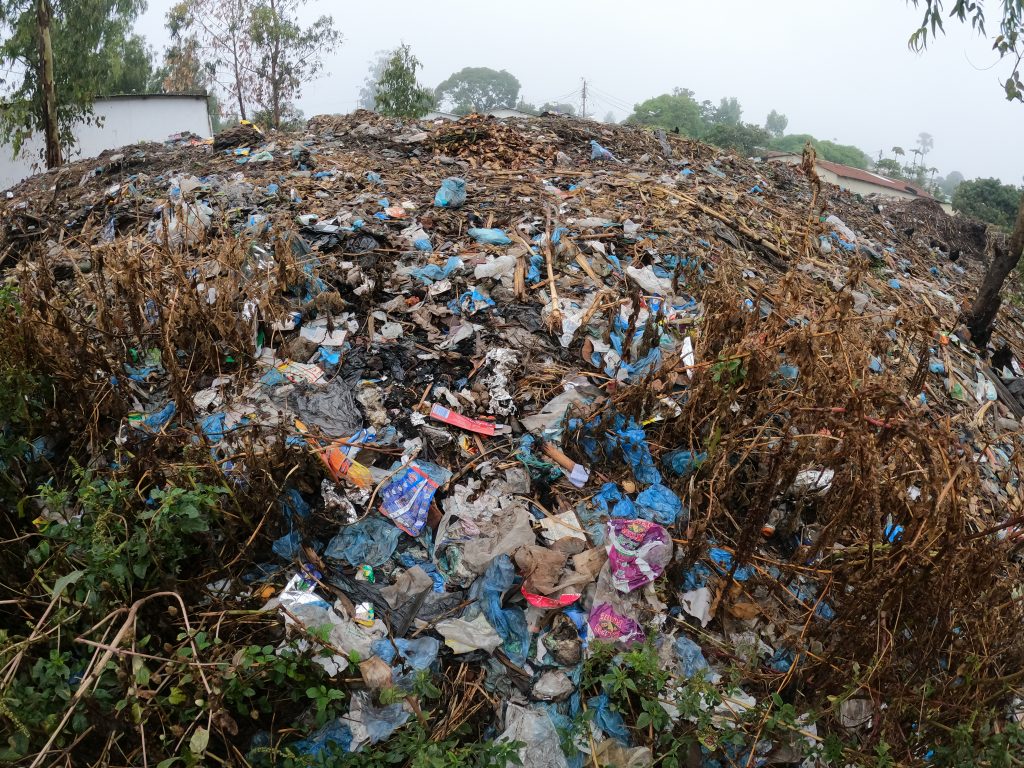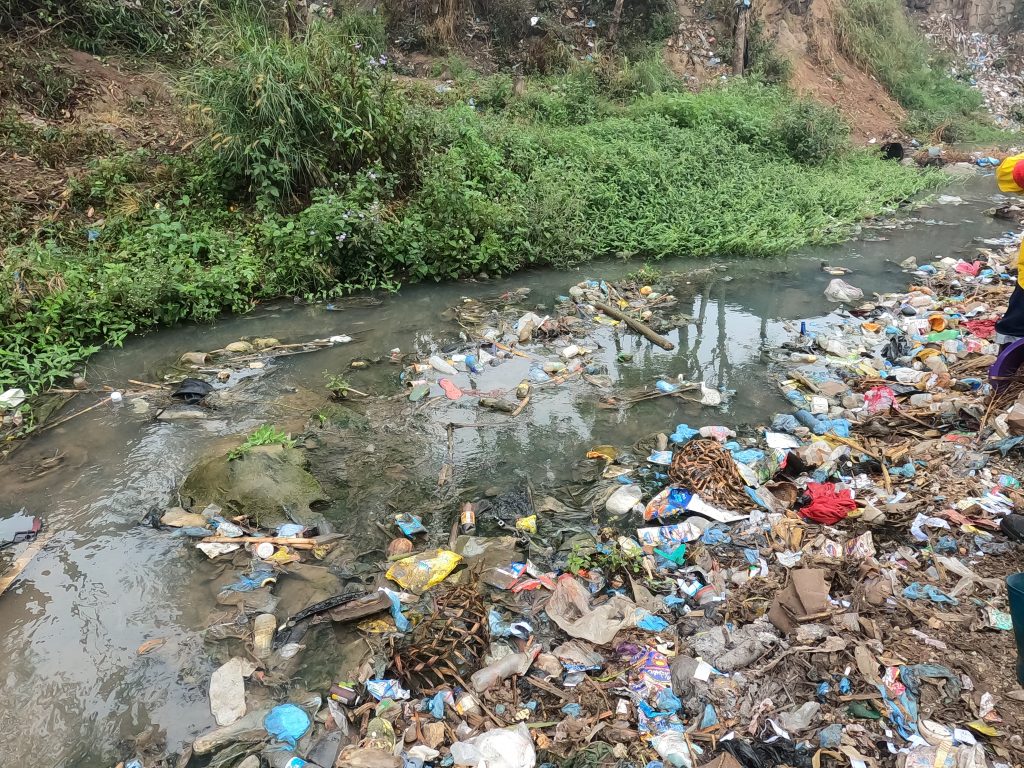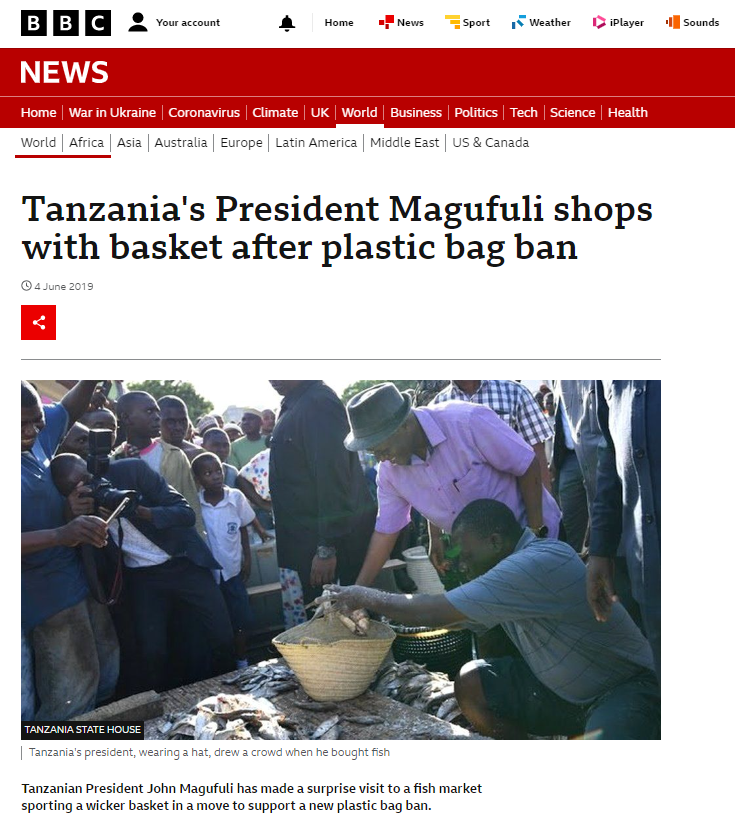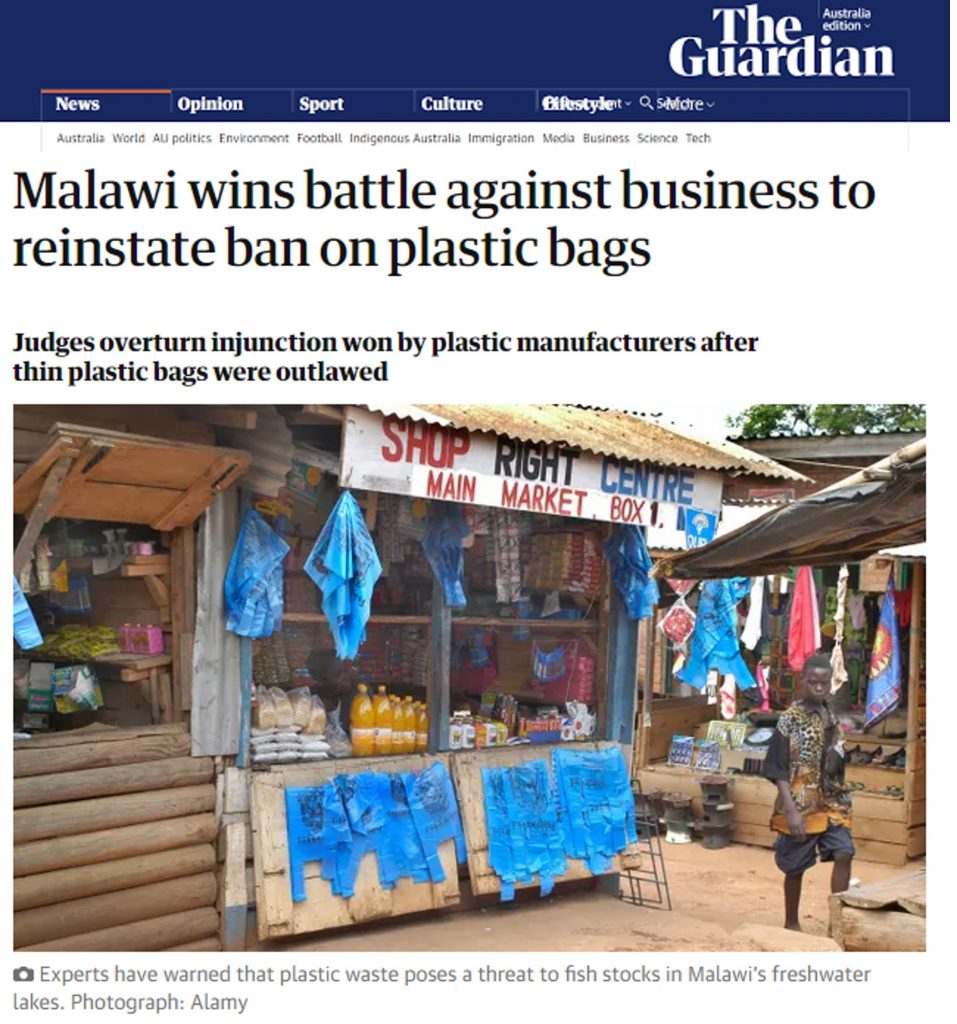
Current Situation
In most sub-Saharan African countries, municipal solid waste is collected and either burned or dumped in areas near human settlements, along roads, at bus stations, in storm water channels, or in rivers.
This results in the formation of large waste piles. Such waste piles, often referred to as middens, contain large quantities of plastic waste and pose serious challenges for sustainable waste management and for the delivery of environmental and public health.


The Problem
In many cities in sub-Saharan Africa, plastic wastes, and plastic bags in particular, block urban drainage systems [1,2]. During rain events, this leads to localised flooding, with an increased risk of human exposure to raw sewage and the spread of waterborne pathogens within highly populated areas.
Plastics in the environment may also be acting as a reservoir for pathogenic microbes, such as Salmonella, Vibrio cholerae, and E. coli, particularly when faecally contaminated [3], which is a common occurrence as urban rivers are typically used as open sewers.
In addition to direct human exposure risks, the transfer of microbial pathogens from these reservoirs could be facilitated by heavy rain and the resulting runoff, or via scavenging domestic and wild animals.
Therefore, plastics in the environment may be major factors in facilitating the survival of pathogens and facilitating the emergence of novel zoonotic diseases.
Malawi and Tanzania
Malawi and Tanzania are two of the world’s poorest countries (IMF 2019), yet consumption of plastics has exploded in the last decade. They make important case-study countries because of their recent governmental responses to plastic bags.

In Malawi in 2012, thin plastics (less than 60 µm) were banned; however, in June 2013 the Plastic Manufacturers Association of Malawi (PMAM) obtained an injunction against the ban, arguing that it would hurt businesses and cost jobs. In 2015, the Environment Management (Plastics) Regulations came into effect, and in August 2019 the Supreme Court upheld the ruling of 2015, effectively re-instating the ban. However, in reality plastics continue to be manufactured, sold and disposed of widely in Malawi despite this legislation.
In June 2019, Tanzania enacted legislation that stated “All plastic carrier bags, regardless of their thickness are prohibited from being imported, exported, manufactured, sold, stored, supplied or used in mainland Tanzania”, with a fine for manufacturing plastic bags set at a max TSH1billion (ca. £335,000).

Understanding the response to these two contrasting policy landscapes, together with the perceptions and behavioural choices of businesses, communities and individuals, will allow the SPACES project to evaluate the success of such legislation and regulations in terms of economic development, livelihoods, socio-cultural networks and the flows of plastics through each country.
References
[1] Williams M, Gower R, Green J, Whitebread E, Lenkiewicz Z, and Schröder P (2019). No Time to Waste: Tackling the Plastic Pollution Crisis Before it’s Too Late, Teddington: Tearfund.
[2] Jambeck J, Hardesty BD, Brooks AL, Friend T, Teleki K, Fabres J, Beaudoin Y, Bamba A, Francis J, Ribbink AJ, Baleta T, Bouwman H, Knox J, Wilcox C (2018). Challenges and emerging solutions to the land-based plastic waste issue in Africa. Marine Policy. 96: 256-263
[3] Rodrigues A, Oliver D, McCarron A & Quilliam R (2019) Colonisation of plastic pellets (nurdles) by E. coli at public bathing beaches. Marine Pollution Bulletin, 139: 376-380
